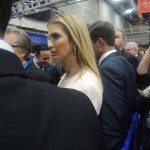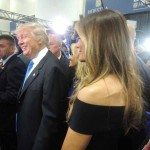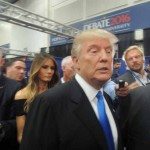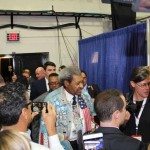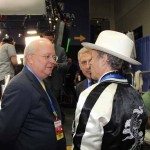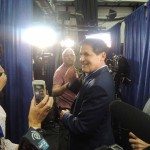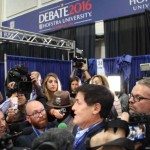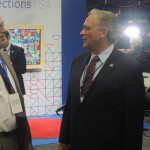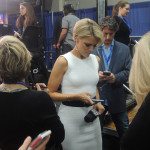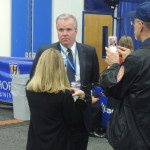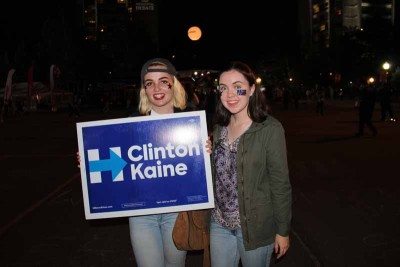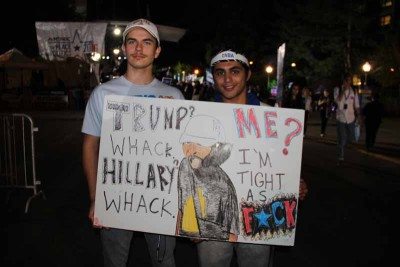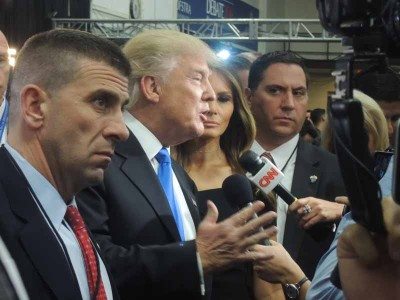
Hillary Clinton and Donald Trump kept it civil, yet did get in a few digs, as they faced off during the first presidential debate this week at Hofstra University.
Moderated by NBC Nightly News anchor Lester Holt, the highly anticipated event drew more than 84-million viewers looking to hear the candidates’ plan for the country and what antics would unleash on stage. The night began with the candidates talking about their plans for achieving prosperity in America; Trump talked about cutting taxes for businesses and bringing jobs back to America, while Clinton focused on growing the middle class.
“The central question in this election is really what kind of country we want to be and what kind of future we’ll build together. First, we have to build an economy that works for everyone, not just those at the top. That means we need new jobs, good jobs, with rising incomes,” Clinton said. “I want us to invest in you. I want us to invest in your future.”
Investing in the future, Clinton went on to say, meant jobs in infrastructure, advanced manufacturing, innovation and technology, clean, renewable energy and small business. She also talked about making the economy fairer, through raising the national minimum wage and guaranteeing equal pay for women, and supporting those who balance family and work through paid family leave, affordable child care and debt-free collage.
Trump responded by talking about bringing jobs back to America, saying “jobs are fleeing the country” and going to Mexico and other countries.
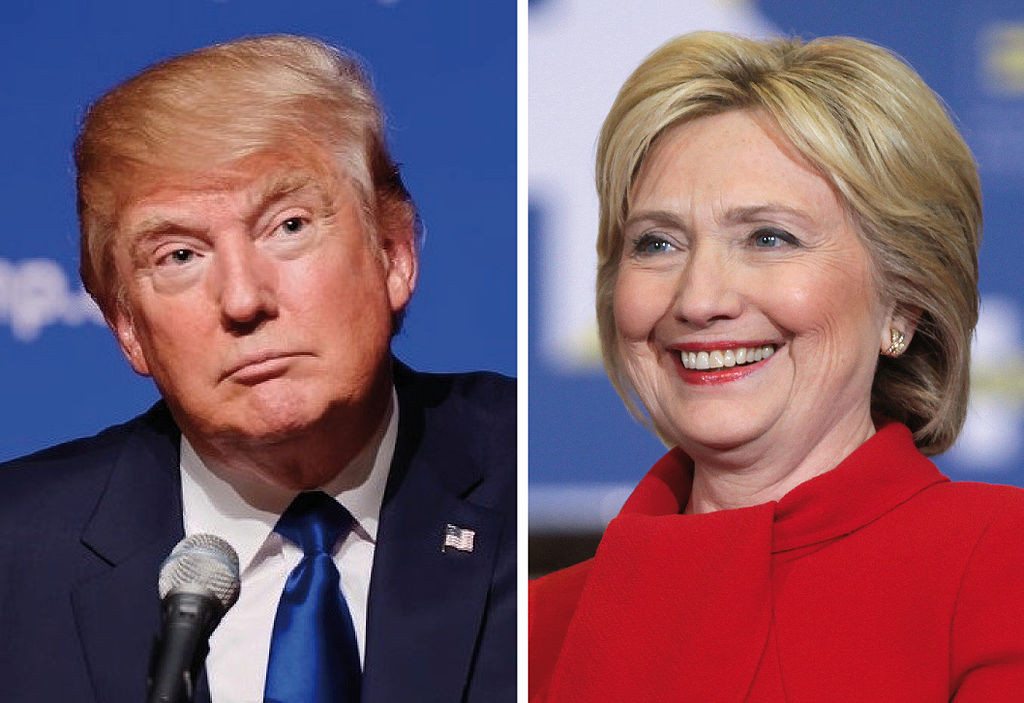
“We cannot let it happen. Under my plan, I’ll be reducing taxes tremendously, from 35 percent to 15 percent for companies, small and big businesses,” Trump said. “That’s going to be a job creator like we haven’t seen since Ronald Reagan. It’s going to be a beautiful thing to watch.”
Clinton criticized the “trumped-up trickle down” plan saying it would not grow the economy but would only reward the country’s wealthy, while Trump said Clinton had done nothing to get new jobs in the past 30 years.
Race relations were another big topic for the evening. Clinton and Trump both agreed that people on terrorist watch lists and no-fly lists should not be able to buy guns, however they clashed on the issue of stop and frisk, which Trump expressed praise for and Clinton said was ineffective and ruled as unconstitutional.
“We have to restore trust between communities and the police. We have to work to make sure that our police are using the best training, the best techniques, that they’re well prepared to use force only when necessary,” Clinton said. “Everyone should be respected by the law and everyone should respect the law.”
Trump said America needed law and order, and that African Americans and Hispanics in inner cities were “living in hell because it’s so dangerous.”
“We need law and order in the inner cities, because the people that are most affected by what’s happening are African-American and Hispanic people. And it’s very unfair to them what our politicians are allowing to happen,” Trump said.
The final question of the night was what would if the candidates would be willing to accept the outcome of the election as the will of the voters.
“I support our democracy. And sometimes you win, sometimes you lose. But I certainly will support the outcome of this election,” said Clinton. “I hope the people out there understand: This election’s really up to you. It’s not about us so much as it is about you and your families and the kind of country and future you want. So I sure hope you will get out and vote as though your future depended on it, because I think it does.”
“I want to make America great again,” said Trump. “I’m going to be able to do it. I don’t believe Hillary will. The answer is, if she wins, I will absolutely support her.”
Voters have just shy of two months to decide who they want to run the country for the next four years.
Richard Himelfarb, a political science professor at Hofstra, said this has been a “lesser of two evils” election, with many voting for their candidate because they don’t want the other to win.
“Donald Trump is not a traditional conservative. He’s a very unorthodox candidate in terms of his demeanor,” Himelfarb said. “And his opponent is somebody who is ethically challenged and is seen as somebody who doesn’t tell the truth. People generally dislike both candidates on a visceral level.”
That’s the case for Marco Rubero from Jacksonville, FL, a freshman film major at Hofstra who said he’s not voting for either candidate.
“Either way it’s going to be four years of someone I don’t like,” he said. “I don’t think either of them represent what we need.”
Fellow Hofstra freshman Brigid Fietall found herself a Trump supporter “by default,” saying that while she doesn’t love the Republican candidate, she wants to support her party.
“You gotta make do. This is who we have now,” the Islip resident said. “I’m more concerned about conservative values than liking the candidate. I don’t love Donald Trump but I don’t want Hillary to be president. I don’t think he’s a true conservative or a true representation of the Republican party. It’s unfortunate these are the people we have to pick from.”
Sarah Dowd, a freshman from Old Saybrook, CT, said while Bernie Sanders was her first choice, she fully supports Clinton now.
“I think Hillary is more experienced, she’s been in the White House for years, she knows how things happen there and how the system works,” Dowd said. “I agree with a lot of the policies she’s said so far and connect with it a lot.”
And if her candidate doesn’t win?
“I’ll do what I can to make my country a better place,” Dowd said. “I don’t agree with a lot of what [Trump] says. But if that comes, I want to think about what I can do to change my country and make it better.”
The vice presidential debate will take place on Tuesday, Oct. 4, at Virginia’s Longwood University, moderated by Elaine Quijano of CBS.
CNN’s Anderson Cooper and ABC’s Martha Raddatz will moderate the town hall-style second presidential debate, to take place Sunday, Oct. 9, at Washington University in St. Louis, MO.

